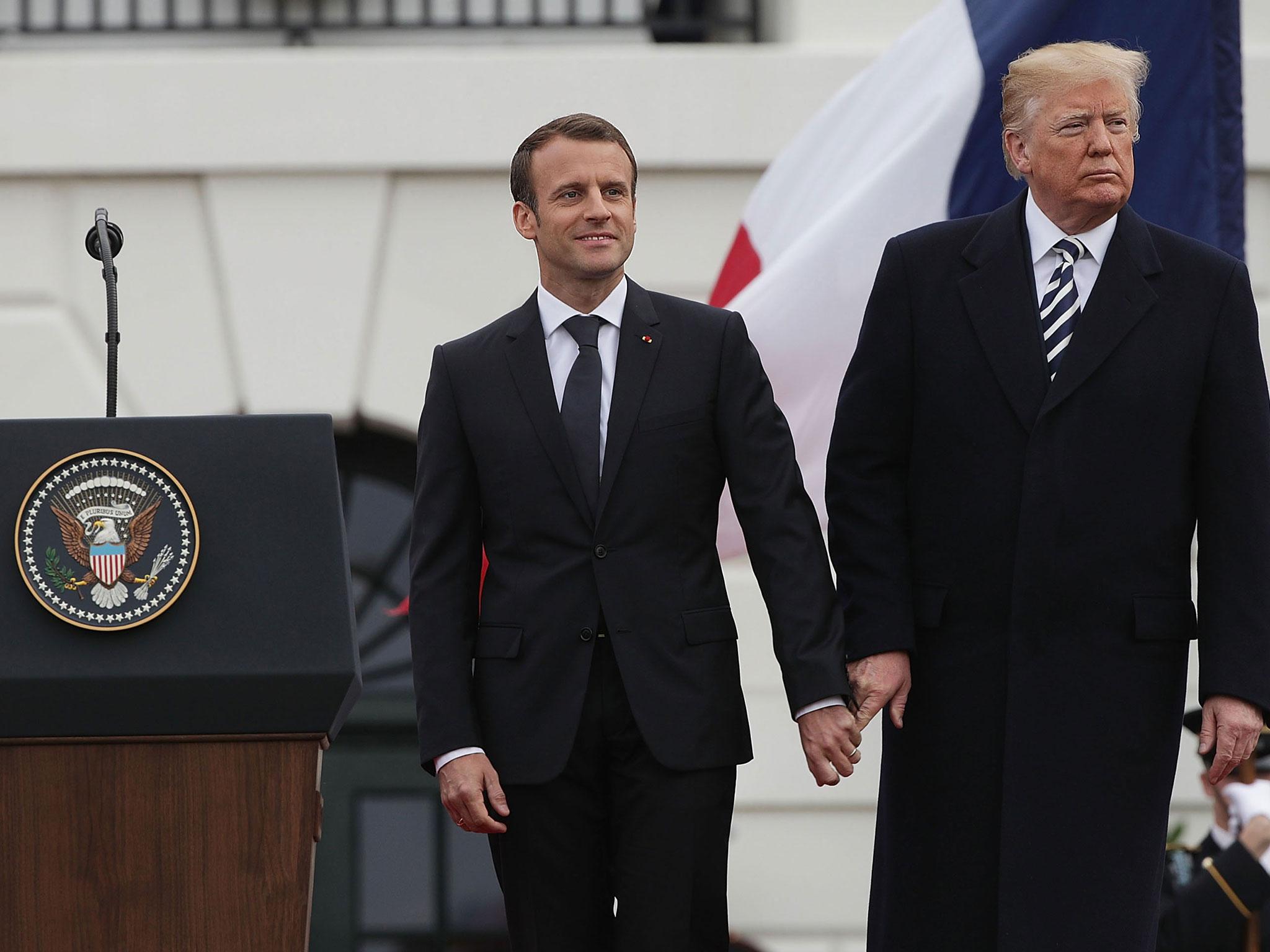Five things to tell us whether Trump’s trade war will seriously damage the world economy
At the moment global growth is strong, but the president’s recent actions could put that in jeopardy


Your support helps us to tell the story
From reproductive rights to climate change to Big Tech, The Independent is on the ground when the story is developing. Whether it's investigating the financials of Elon Musk's pro-Trump PAC or producing our latest documentary, 'The A Word', which shines a light on the American women fighting for reproductive rights, we know how important it is to parse out the facts from the messaging.
At such a critical moment in US history, we need reporters on the ground. Your donation allows us to keep sending journalists to speak to both sides of the story.
The Independent is trusted by Americans across the entire political spectrum. And unlike many other quality news outlets, we choose not to lock Americans out of our reporting and analysis with paywalls. We believe quality journalism should be available to everyone, paid for by those who can afford it.
Your support makes all the difference.Is the trade skirmish – let’s not call it a war yet – going to do serious damage to the world economy? Or is President Trump using aggression as a negotiating stance and eventually a fairer trading relationship between the US and other major economies will be developed?
It matters a lot not just for the world economy now but also for the future. At the moment global growth is strong, driven largely by the long boom in the United States, the world’s largest economy. This strong growth means that it would take a pretty big blow to derail it. Trade restrictions are damaging but the world economy is tough. But for the future, any rowing back from the gradual opening of trading conditions that has taken place since the Second World War could really undermine what would otherwise be a very positive long-term outlook.
So what should we look for in the weeks ahead?
Well, there are three things right now. One is the fight between the EU and the US over steel and aluminium tariffs. How does Europe retaliate? Tariffs on bourbon – forcing us to drink more Scotch and Irish instead? It is all a bit childish at the moment, and that is not a good start. What Europe needs to do is to acknowledge that the administration has a point. There is a large trade and services deficit with the EU, or rather some parts of the EU, particularly Germany. (The UK is close to a current balance with America.) Germany is running a current account surplus equivalent to 8 per cent of its GDP. That is because the world wants to buy German stuff and the country is to be credited for the quality of its engineering, if not for its cheating over emission standards. But that level of surplus is unsustainable.
Next there is the future of Nafta. Canada and Mexico are caught up in the steel and aluminium tariff row, but there is a bigger game here. That is whether the North American continent can continue on the march towards a free trade zone. Nafta is by no means perfect, and there are all sorts of minor barriers to open trade. But it is a base from which you can negotiate. The US is the dominant partner in these negotiations and so does not need to throw its weight about. But it also needs a friend to the north and a friend to the south, along undefended borders. Does the president know this? Or is the drama of beating up your friends more attractive?
Third, there is the long-term relationship with China. Negotiations are taking place in Beijing right now, but I am not particularly troubled by what will come out of these. Numbers matter more than words. So by how much does China’s trade surplus with the US, currently running at more than $350bn a year, come down? Does China really open up its industries to foreign ownership? The present outlook is for China to seek to cut its surplus, perhaps to $200bn a year, and that is a start. But opening up to the world is the bigger long-term issue. Clues about that are really interesting.
So far all this is about the main trading blocs and how they cope in the coming weeks with a different and disruptive style of negotiating from the US. I don’t think castigating the president for this is helpful. The US has long had a protectionist streak running through its politics and will have it long after the present administration is ended. What troubles me is this: is protectionism gaining popularity among the American electorate? If it is, then the rest of the world has to cope with it, first by looking in the mirror, and next by thoughtful diplomacy.
Finally, all this is not just about the US and its current leadership. Will the rest of the world carry on opening up trade relations, both in physical trade and in trade in services? Or will protectionism spread? What does India, which will within a generation probably become the world’s third largest economy, think about free trade? Is Europe committed to free trade, given that it has substantial barriers to imports of some goods and particularly to services? I am not so worried about the US now, for this is a phase, but much more concerned about the world beyond in three and more years’ time.
Join our commenting forum
Join thought-provoking conversations, follow other Independent readers and see their replies
Comments